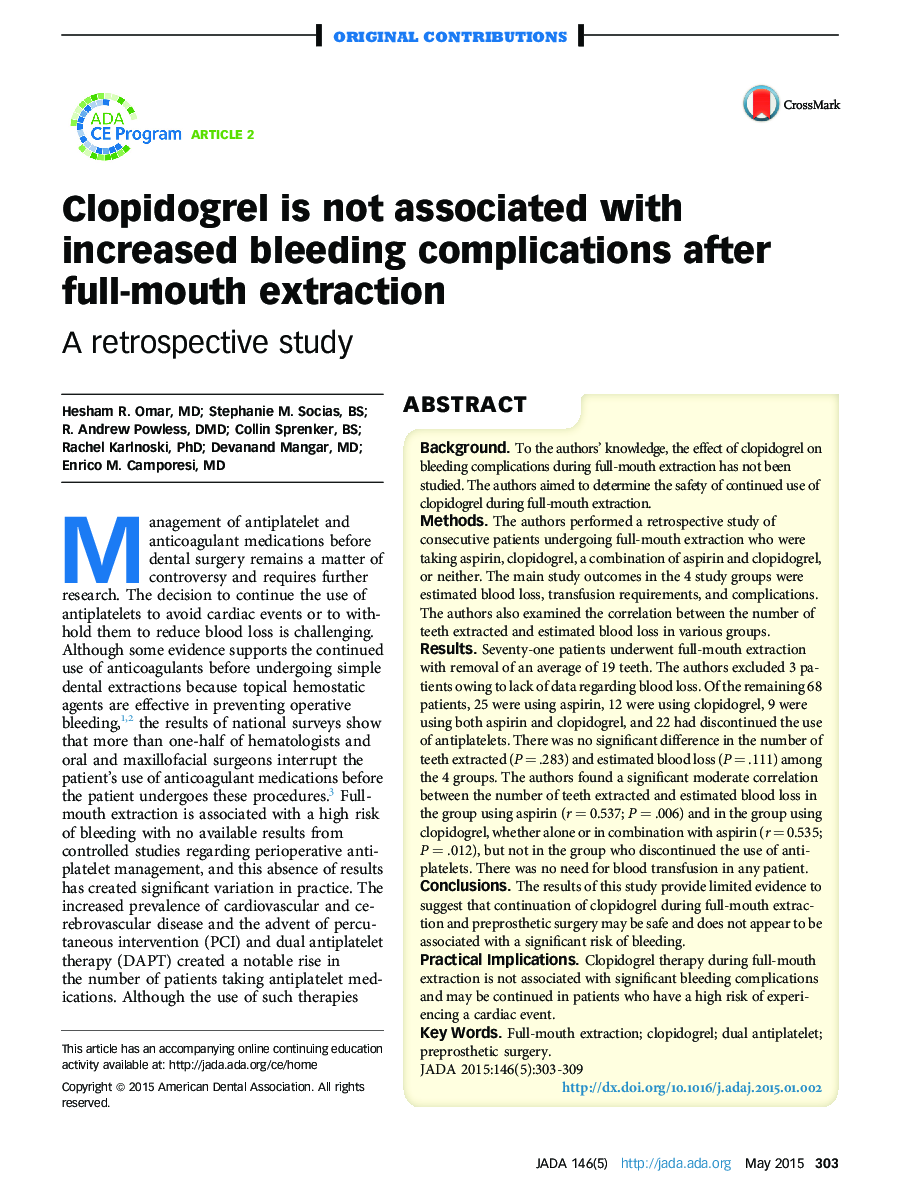| Article ID | Journal | Published Year | Pages | File Type |
|---|---|---|---|---|
| 3136671 | The Journal of the American Dental Association | 2015 | 7 Pages |
BackgroundTo the authors' knowledge, the effect of clopidogrel on bleeding complications during full-mouth extraction has not been studied. The authors aimed to determine the safety of continued use of clopidogrel during full-mouth extraction.MethodsThe authors performed a retrospective study of consecutive patients undergoing full-mouth extraction who were taking aspirin, clopidogrel, a combination of aspirin and clopidogrel, or neither. The main study outcomes in the 4 study groups were estimated blood loss, transfusion requirements, and complications. The authors also examined the correlation between the number of teeth extracted and estimated blood loss in various groups.ResultsSeventy-one patients underwent full-mouth extraction with removal of an average of 19 teeth. The authors excluded 3 patients owing to lack of data regarding blood loss. Of the remaining 68 patients, 25 were using aspirin, 12 were using clopidogrel, 9 were using both aspirin and clopidogrel, and 22 had discontinued the use of antiplatelets. There was no significant difference in the number of teeth extracted (P = .283) and estimated blood loss (P = .111) among the 4 groups. The authors found a significant moderate correlation between the number of teeth extracted and estimated blood loss in the group using aspirin (r = 0.537; P = .006) and in the group using clopidogrel, whether alone or in combination with aspirin (r = 0.535; P = .012), but not in the group who discontinued the use of antiplatelets. There was no need for blood transfusion in any patient.ConclusionsThe results of this study provide limited evidence to suggest that continuation of clopidogrel during full-mouth extraction and preprosthetic surgery may be safe and does not appear to be associated with a significant risk of bleeding.Practical ImplicationsClopidogrel therapy during full-mouth extraction is not associated with significant bleeding complications and may be continued in patients who have a high risk of experiencing a cardiac event.
